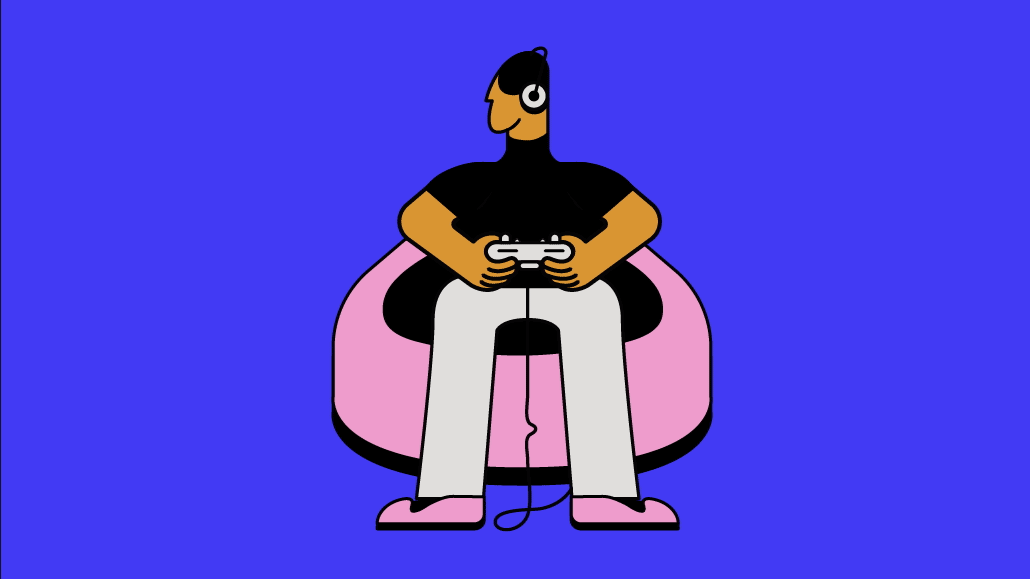Secure your place at the Digiday Media Buying Summit in Nashville, March 2-4
Why Coca-Cola is becoming the first worldwide founding partner of Wild Rift Esports

Coca-Cola has signed on as the first worldwide founding partner of Wild Rift, Riot Games’ popular mobile title, under a new, multi-year agreement. The arrangement is a forceful endorsement of mobile esports by a prominent international brand, giving extra heft to Riot’s efforts to build a viable competitive mobile gaming ecosystem.
The partnership encompasses both Wild Rift — a mobile title modeled after Riot’s wildly popular PC title League of Legends — and the game’s corresponding esports leagues, which Riot launched in January. Coca-Cola will work with Riot Games to produce custom content and fan experiences for both casual and competitive Wild Rift players. Both companies declined to share how long the sponsorship will run for or how much it was worth.
This isn’t Coca-Cola’s first partnership with Riot Games. The beverage brand sponsored various competitive League of Legends events, including the annual League of Legends World Championship, from 2013 to 2016.
“We always had this hope to continue the relationship, and this just felt like the right moment, the right opportunity,” said Coca-Cola senior director of global gaming, influencers and new platforms Valéria Herzer.
Indeed, Coca-Cola’s decision to sponsor a mobile esports league comes at an auspicious time, following an increase in mobile esports activity over the past year. In addition to Riot’s efforts, prominent esports operators such as ESL Gaming have formed their own dedicated mobile esports leagues in recent months.
Mobile gaming is particularly popular in Asian markets, where gaming PCs and consoles can be less accessible for many gamers. Wild Rift’s North American numbers lag behind those of these regions, and Riot is hoping to beef up the game’s domestic presence through the Coca-Cola partnership.
“Having a brand as impactful as Coca-Cola believe in that vision, coming in early and putting in that energy and effort to build the ecosystem together — it’s just awesome,” said Leo Faria, head of Wild Rift Esports at Riot Games. “It marks the beginning of a partnership that will definitely bring Wild Rift Esports to a new level.”
As a founding partner of Wild Rift Esports, Coca-Cola finds itself in a similar position to other early esports league sponsors, such as MasterCard, whose decision to partner with League of Legends Esports in 2018 spurred a deluge of brand interest in competitive gaming.
“It’s legitimacy; it gives a measure of comfort to other sponsors that are looking to come into the space,” said Jason Chung, assistant professor of sport management and executive director of esports at the University of New Haven. “At the end of the day, business is all copycat, right? So if one of the big non-endemic brands does due diligence and finds that there’s money to be made here, other brands are going to devote resources and time to at least checking it out — and that’s good for the industry overall.”
By all accounts, the partnership is a symbiotic one, with Coca-Cola reaping the benefits of Wild Rift’s considerable appeal to experienced gamers. In September 2021, Coca-Cola kicked off its “Real Magic” brand platform with a gaming- and esports-themed video advertisement that received considerable pushback from gamers who claimed it was pandering or inauthentic. The Wild Rift agreement might help Coca-Cola forge a more genuine connection with the gaming community.
Herzer acknowledged the pushback. “I think what’s most important is that we’re always listening, and what we learned and how we evolved from that,” Herzer said. “Coca-Cola has played a number of roles in the gaming community; now, it’s more about how we move forward into being more specific, more catered to the gaming audience.”
The first execution of the partnership is Coca-Cola’s “It Must Be Real” digital campaign, which features scenes from Wild Rift Esports. Though Coca-Cola and Riot declined to provide specific details about its plans for future activations, they confirmed that Coca-Cola will feature heavily in Wild Rift Esports livestreams — and that Riot is exploring dedicated in-game content tied to the beverage brand. That could include arena banners, like those seen at traditional sports, which Riot has effectively implemented for League of Legends esports events, according to Faria.
The regular season of Wild Rift Esports runs until March 27, with the top six teams worldwide advancing to a playoff round between April 1 and April 10. Whether the Coca-Cola partnership is activated in-game or on-stream, it’s the strongest vote of confidence in mobile esports by a prominent brand thus far. To non-endemic brands and marketers, mobile esports represents valuable untrodden ground — and Coca-Cola just staked its claim.
“When you’re a company the size of Coca-Cola, you’re looking for something that’s ubiquitous, or potentially ubiquitous. That’s the reason why Coca-Cola has sponsored huge international events, such as the Olympics,” Chung said. “They don’t like to be associated with No. 2, simply because that’s not their business model — they’re the No. 1 fizzy beverage in the world, so they want to align themselves with success.”
More in Marketing

Future of Marketing Briefing: AI’s branding problem is why marketers keep it off the label
The reputational downside is clearer than the branding upside, which makes discretion the safer strategy.

While holdcos build ‘death stars of content,’ indie creative agencies take alternative routes
Indie agencies and the holding company sector were once bound together. The Super Bowl and WPP’s latest remodeling plans show they’re heading in different directions.

How Boll & Branch leverages AI for operational and creative tasks
Boll & Branch first and foremost uses AI to manage workflows across teams.








